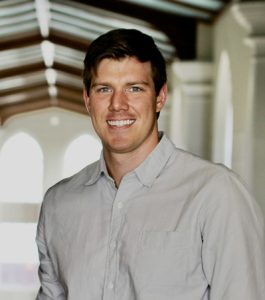Name: John Kane
Job Title and Current Employer: Ph.D. Candidate, University of Notre Dame
Home Town: Shavertown, PA
Current Location: South Bend, IN
Short Description of your time in the Bacteriology MS Program: As a research-track master’s student in Dr. Joe Dillard’s lab, I investigated the molecular mechanisms underlying the type IV secretion system in Neisseria gonorrhoeae. This system plays a central role in horizontal gene transfer and mediates interactions with host cells during infection. My work focused on characterizing how components of the system are regulated at the genetic and extracellular level. I also examined specific protein-protein interactions that facilitate the assembly and function of the secretion machinery.
MS Degree Received in: August 2021
Describe your career path from graduate school to your current position. After graduating in 2021, I transitioned directly into a Ph.D. program at the University of Notre Dame. When exploring graduate programs, I was specifically looking to apply the molecular biology techniques I had developed in bacteriology to a new research focus in vector-borne tropical diseases, a field that had long interested me. This led me to join Dr. Mike Ferdig’s lab, where I use genetic crosses to study the molecular and evolutionary mechanisms of antimalarial resistance in Plasmodium falciparum. A central theme in our lab is understanding how parasites balance the acquisition of drug resistance mutations with the associated fitness costs. One of my projects focuses on characterizing a novel amino acid transporter that has been linked to reduced susceptibility to frontline antimalarials, yet appears to impose a relatively mild fitness burden. This work aims to clarify how certain resistance mechanisms may evade typical evolutionary trade-offs and contribute to the spread of drug-resistant malaria.
Describe a “day in the life” of your current job. Compared to bacteria, working with Plasmodium falciparum means my daily schedule is often dictated by where the parasites are in their 48-hour blood stage cycle. My research involves extensive qPCR and transcriptomics work, and I collaborate closely with biochemists and metabolomics specialists to take a multi-omics approach to our questions. A significant part of my thesis focuses on population genetics, where I use computational analyses to identify genes under selection in malaria-endemic regions and explore how parasite populations might respond to frontline antimalarials. As I enter the final year of my Ph.D., I am increasingly focused on writing my dissertation and applying for jobs/postdocs for next year.
What do you like best and what do you find challenging about your current job? One of the aspects I enjoy most about my current role is being involved in the grant writing process, which I’ve had the opportunity to participate in since my first year. While the cycle of rejection and resubmission can be challenging and, at times, discouraging, I genuinely enjoy the process of crafting a compelling narrative that convinces a review panel our research is impactful and gets them as excited about the work as I am. I’ve also had the chance to contribute to collaborative proposals with PIs from institutions across the country. What I find especially rewarding about this is the ability to think beyond the constraints of my own skillset or graduation timeline. Instead, I can step back and ask what the ideal experiment would be to answer a specific question, and who are the best people to help us make it happen. That kind of big-picture thinking keeps the work energizing and forward-looking.
What is the most important lesson you have learned throughout your career? Talk to as many people about your work as possible, both within and outside of your field. I’m constantly surprised by how often people from seemingly unrelated disciplines can offer valuable insights or draw unexpected parallels. Some of our core experimental protocols were adapted from large-scale ecological nutrient studies, and one of our approaches for quantifying parasite fitness is based on an algorithm originally developed to rank chess players. There have been several times when I overlooked a data point, only for someone from another field to focus on it and get excited, often because they brought in knowledge I didn’t have, which led to some of our most significant findings. You never know who might help you see your research in a new light or offer a solution you hadn’t considered.
What are some skills that have served you well through your career? A skill that I am constantly working on and have found to be invaluable is the ability to discuss my work with a wide range of people. It is so easy to fall into the trap of discussing your research with the same niche group of highly specialized experts, only to find out later that you wrongly assumed everyone already understands the foundation of your work. Communicating without scientific jargon not only makes your research more accessible, it also makes people more curious and engaged in it.
What is one of your favorite memories, classes, professors, or activities while in the Bacteriology MS Program? I had a blast taking Laura Knoll’s Emerging Infectious Diseases and Bioterrorism class. It is different from most other courses and makes your view these pathogens from a different perspective.
What are your interests outside of work? I am always looking to do something physically active. This past summer, I was actually a practice player for the Notre Dame women’s basketball team.